Are you exploring different careers in fashion, trying to understand which one is the right for you?
Or perhaps you found your calling in the creative side of the fashion industry, but you don’t want to become a designer and are thinking about what other career options you have?
Luckily, becoming a fashion designer is not the only way to work in fashion. Fashion is a vast industry and every company has many different departments.
At Glam Observer, together with giving you career advice to get a job in fashion, we like to explain and break down the different roles in the fashion industry. Today, we are going to talk about the role of a fashion product developer. We will be exploring everything from the main responsibilities this job entails, the skills you need to be in the role, what you need to study,, and anything else you need to know about how to become a fashion product developer.
The Role of the Product Developer in Fashion
Who Is A Fashion Product Developer?
Placed within the design and production departments of a fashion company, a product developer is involved in the complete product development from initial drawings to final samples with the aim of bringing a fashion product from concept to completion, thus translating design ideas into feasible and marketable products. They are responsible for planning, developing, and presenting fashion-focused products for a specific market within a company, such as accessories, footwear, lingerie, or womenswear. Product developers must ensure that the products are produced efficiently, meet quality standards, and align with the designer’s vision, brand’s aesthetic, and market positioning.
The daily tasks of a product developer in the fashion industry can include:
- Work closely with the technical construction and design team to develop seasonal collections from design concepts to prototypes.
- Collaborate with internal and external designers and give them recommendations on design modification, manufacturing techniques, construction, and materials to reduce price and/or improve manufacturability while maintaining design and quality.
- Create tech packs to hand over to the design team.
- Attend presentations and meetings as you work closely alongside the design team, to offer insightful feedback and ideas or solutions to ensure the development runs smoothly with a clear vision.
- Engage in material development and sourcing.
- Communicate with different factories globally to source the best materials needed for your product. This can sometimes involve international travels to the factories to track progress and check the quality of samples or to source trims and fabrics to order new materials and maintain good relationships with the vendors.
- Work with manufacturers by monitoring supplier performance and delivery schedules, negotiating prices, and analyzing product costs.
- Take on seasonal research to keep a close eye on fabrics and trends, making sure you stay an expert in your field.
- Monitor current sales and keep a close eye on bestsellers as part of your research so you can make informed decisions when developing a product.
So what skills do you require to take on this resourceful role?
Product Developer Skills
This role combines creative, technical, and managerial skills to transform design concepts into tangible fashion products.
Design and Product knowledge
To begin with, you need a great understanding of the design process. From textiles to consumer spending, you need a broad knowledge of design and merchandising. This includes being able to work closely with designers to understand and interpret their creative visions so you can explain this to other experts involved in the development process, such as vendors. You also need expert product knowledge and a technical understanding to be able to confidently communicate and provide input and ideas to the design team on specifics from pattern cutting and construction to raw materials including knit and leather.
Knowledge of trends
Even though this role involves no trend forecasting, you still need good knowledge of trends, your market, and consumer to be able to make informed decisions and research when beginning your product development to create technical packs.
Computer programs
It goes without saying, of course you need to be confident in using MS Office programs like Excel and Adobe, especially Illustrator to be able to create and communicate your ideas and development.
Communication
A key and very important aspect of this role is communication and maintaining positive relationships with everyone in the chain. As a professional who oversees the whole production line, it’s important to sustain strong relationships with everyone from the design team to the factories to ensure everyone is working towards the same goal, and have the ability to share important information effectively and clearly across the production process.
Attention to detail
Managing product development from the early stages to completion requires strong attention to detail so that you don’t lose on quality and miss important details in the process, especially if you work for a luxury brand. For example, when you create tech packs to hand over to the design team, you must pay close attention to detail when developing them to ensure the start of product development goes smoothly.
Time management
As you oversee the whole process from start to end, you must manage your time well ensuring deadlines are respected.
Problem-solving
As the pressure lies on you to organize and direct the development, you must be an effective problem solver who can work collaboratively and independently, while offering a positive outlook to all the teams involved.
What to study to become a product developer?
Like with any other career in fashion, there isn’t one single path to becoming a product developer. Nor do you need to study design to be able to understand the design process and work alongside designers. There are product development courses nowadays but people also get into this role with traditional degrees.
If you come from the creative field, say art history, you can transform this background into an asset to have a creative approach in your work as a fashion product developer.
If you hold a degree in business, management, or communication, that can also be useful as they teach you soft skills like time management, project management and communication that allow to bring the product to life through all the stages and maintaining relationships with different stakeholders.
Regarding other hard skills like knowledge of computer programs and trends, you can actually learn them on your own by taking an online course or watching videos online, and following the latest trends on digital platforms and social media.
As you can see, the role of a product developer doesn’t require too many specific skills that only a fashion school can teach you. So if you studied – or are planning to study – something completely unrelated to fashion and design, becoming a product developer is not so hard if you acquired the necessary skills by other means and can transfer them to the job in product development. Remember: nowadays, recruiters don’t pay much attention to what you studied, but whether you have a passion for the industry and motivation for the job, as well as some skills, so it doesn’t matter where you learn them 😉
How to get a job as a product developer?
Start interning
Like with any fashion job, experience goes a long way! So our advice for you is to start interning, which will give you good sourcing knowledge and a great background to begin your career in product development.
Of course, you can start looking for internships within the design and production department, as this is the perfect place to learn about product development. But that’s not the only option. If you are unable to find internships within a product development team, you can search for other positions where you can gain skills that will prepare you for a job in product development. For instance, you can intern within a design team to learn about the design process. You can also gain some experience in managing vendor relationships and working with products as a buyer or merchandiser. Finally, an internship at the trend forecasting department is also a good idea as there is no better place to learn about trends.
In sum, keep your eyes open to different internships in fashion and not just the ones in the product development department. Every experience is valuable and you can transfer skills acquired at one role to the other.
A cold application?
If you want to find an internship in product development, of course, you should look for open vacancies online. However, there is another excellent unconventional way to find an internship to start your career in product development: cold emailing companies.
A cold email is a spontaneous application that you send to employers asking for an internship. It is especially effective if you haven’t found an opportunity online, so instead of waiting for one to come (because we don’t know when that might happen, right?), you should be proactive and send a spontaneous application with your CV and cover letter directly to the person who is doing this job at X fashion company.
You can also support your application by including a portfolio showing your passion for product development How? For example, how about creating a prototype of a product on a computer program? Or a tech pack? You can also start a blog to produce your own trend reports and write articles on occurring trends within the fashion industry and outside of it and think about how these might impact fashion. This will show employers that you are a creative and curious person with a hands-on attitude. Demonstrating your skills and passion for the role through a portfolio will make you instantly stand out from other applicants.
I teach about unconventional strategies to break into fashion in this free webinar.
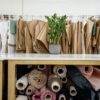
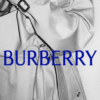
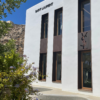
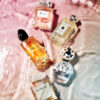
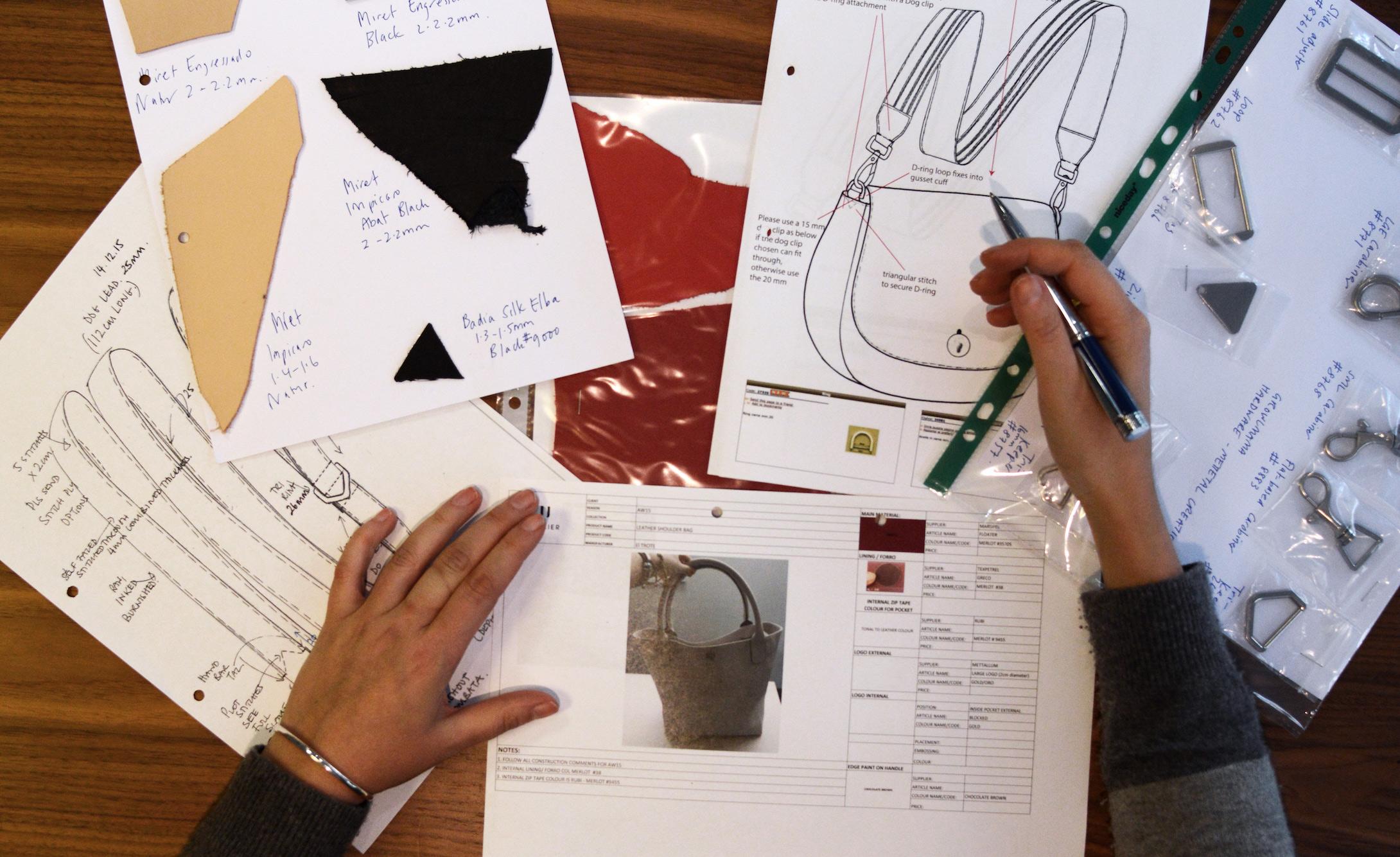
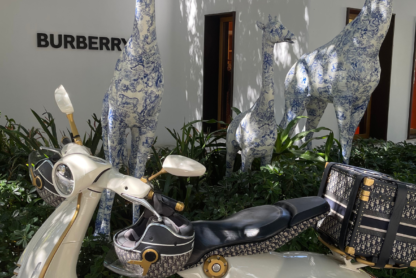
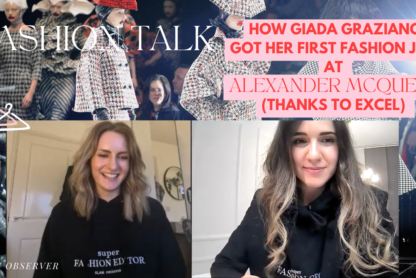
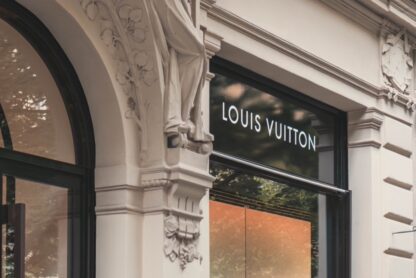
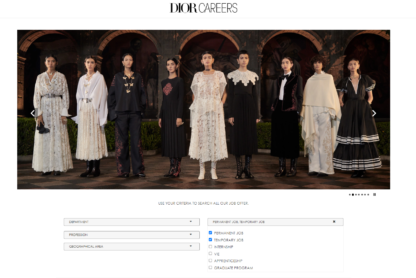
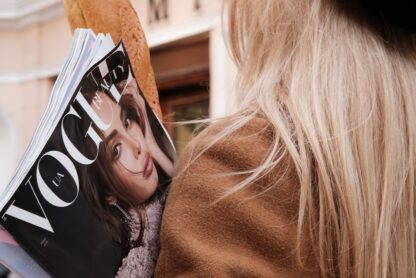
Great info 😊❤️👍